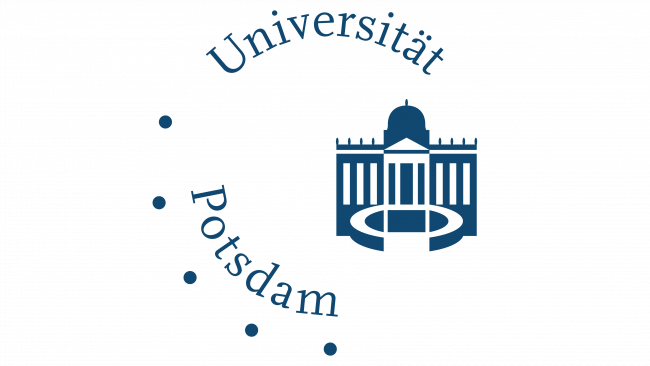University of Potsdam

The University of Potsdam is a German public university in the Berlin-Brandenburg region of Germany. It is situated across four campuses in Potsdam, Brandenburg, including the New Palace of Sanssouci and Babelsberg Park.
The University of Potsdam is Brandenburg's largest university and with its numerous extramural institutes, the Potsdam and Berlin area is known as one of the most densely settled research landscapes in Germany. As for the University of Potsdam, more than 8,000 people are working in scholarship and science. As a winner in the competition "Excellence in Teaching" of the Stifterverband für die Deutsche Wissenschaft (the business community's innovation agency for the German science system) and the standing conference of the Ministers of Education and Cultural Affairs of the states of the Federal Republic of Germany (Kultusministerkonferenz), the University of Potsdam is rigorously implementing its plan to further improve teaching.
Academic profile
At the beginning of the winter semester of the 2008/2009 academic year, roughly 20,000 young people were studying at the University of Potsdam. The largest number of students were enrolled at the Faculty of Philosophy, 5,934 (30%), with 5,324 (27%) at the Faculty of Mathematics and Science. 58% of the students are female, and more than 2,000 are external students. 26% of the freshers come from East Germany, 14% from the West and 14% from Berlin, evaluated by the place where they obtained their entry requirements. After a comprehensive evaluation of its research performance in 2007, the University of Potsdam nominated eight areas of distinction ("Profilbereiche") and one area of excellence in the field of Cognitive Sciences ("Exzellenzbereich") to award their international recognition and research productivity. With interdisciplinary research agenda, the area of excellence links the departments of Psychology, Linguistics, and Sports and Health Science. UP offers more than 100 degree programs in various fields, offered in German as well as other languages, notably French and English.
Notable centres, institutes, colleges and research
Within faculties, teaching and research activities may be further decentralised through departments, graduate schools or institutes. For example,
- PCPM, Potsdam Center for Policy and Management, which has earned the University of Potsdam a reputation as one of the leading competence centers for Governance and the Public Sector. A recent reputation study by the German Association for Political Science has declared the University of Potsdam one of the three most important German universities and research institutions in the area of policy research and administrative sciences. The Center for Higher Education Development considers the Master’s and Ph.D. programs offered here to be among the very best in Europe. Among these are the EAPAA-accredited international postgraduate Program in Public Policy and Management for public sector professionals in English language with the (MPM) Master of Public Management and its three streams: Public Policy and Administration (PPA), Global Public Policy (GPP) and GeoGovernance (GG), the German-French Master of European Governance and AdministrationEuropean Governance and Administration (MEGA) and the Executive Master of Public Management (EMPM) Program with the Hertie School of Governance.
- BIEM-CEIP, Institute for Start-ups, Entrepreneurship and Innovation
- KWI, Institute for Local Government Studies
- The Hasso Plattner Institute for Software Systems Engineering is the first, and currently the only university institute that is completely privately financed. Hasso Plattner, co-founder and advisory board chairman of the software company SAP, created the opportunity for a unique academic elite-education in IT systems technology. Meeting the demands of the industry, about a dozen professors and more than fifty additional visiting professors and lecturers are currently training about 450 highly talented young people in the Bachelor and Master's programs to become IT systems engineers.
- The Hasso Plattner Institute of Design integrates product design, engineering, and business management education, in cooperation with Stanford University. While it is located in Stanford University, it is a joint project and a degree with respective content is also offered through the Hasso Plattner Institute in Potsdam.
- The Abraham Geiger College is the first rabbinical seminary in Central Europe after the Holocaust. When the Nazis closed the Higher Institute for Jewish Studies (Hochschule für die Wissenschaft des Judentums) in Berlin in 1942, it meant the end of an era that had begun with Abraham Geiger. In 1836 Geiger had called for the founding of a Jewish theological department at a German university that would be dedicated to Jewish tradition in the spirit of academic freedom. Today, the Abraham Geiger College provides education for rabbis and cantors for Jewish communities in Central and Eastern Europe. Besides vocational training, participants go through a regular university program of study that is integrated into the extensive curriculum of the Institute of Jewish Studies at the University of Potsdam and that must be completed with a B.A. for cantors and an M.A. for rabbis. After completing the degree and contingent upon agreement of supervisors and mentors, the rabbinical college then recommends candidates for ordination into the Jewish clergy.
- The Moses Mendelssohn Center for European-Jewish Studies focuses on the history, religion, and culture of Jews and Judaism in European countries. A special accent is placed on the history of relations between Jews and their non-Jewish environment. On the one hand, research is concerned with the problems of social integration and acculturation faced by Jews, and on the other hand it focuses on comparative social historical questions related to living conditions and to geographical as well as social mobility. Further areas of research include hostility towards Jews as well as historical and contemporary antisemitism. Much attention is also given to sociocultural and intellectual-historical aspects, such as literature, art, religion, philosophy, and music. The Moses Mendelssohn Center owns an extensive and publicly accessible specialized library that currently holds around 50,000 volumes.
- The Potsdam Graduate School, which sees its primary task in the promotion of already accredited doctoral candidates and post-doctorals as well as in the continuous optimization of doctoral conditions and quality management. The Potsdam Graduate School stands for transparency within doctoral procedures and the intensification and improvement of doctoral supervision.